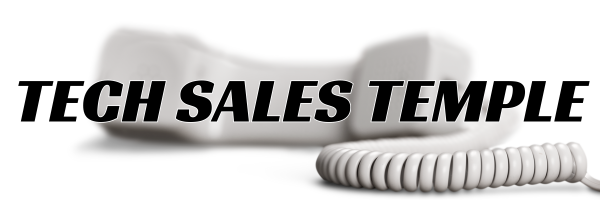Mastering Sales Interview Questions: A Complete Guide for Job Seekers

Introduction to the Importance of Sales Interview Questions
For sales professionals on the hunt for a new opportunity, mastering the interview process is crucial. The questions asked during a sales interview can reveal your skills, experience, and personality, all of which are essential for securing the job. Understanding the key sales interview questions and preparing thoughtful responses can set you apart from other candidates and demonstrate that you are the ideal fit for the role.
Essential Sales Interview Questions for Job Seekers
Behavioral Questions to Assess Sales Skills
Behavioral questions help interviewers understand how you’ve handled situations in the past, which can be indicative of your future performance. Here are some common behavioral questions:
- “Can you walk me through a significant deal you’ve closed?”
- “Tell me about a time when you had to overcome a major objection from a prospect.”
- “Describe a situation where you exceeded your sales targets.”
- “How do you prioritize your sales leads?”
- “Can you share an example of how you built a strong relationship with a difficult customer?”
Motivation and Resilience Questions
Sales is a demanding field, requiring motivation and resilience. Expect questions such as:
- “What motivates you to succeed in sales?”
- “How do you handle rejection?”
- “Can you give an example of a time you persevered through a tough sale?”
- “What strategies do you use to build rapport with prospects?”
- “How do you stay updated with industry trends?”
Scenario-Based Questions to Evaluate Problem-Solving
Scenario-based questions assess your ability to think on your feet and solve problems. Examples include:
- “If a prospect rejects your proposal, what steps would you take next?”
- “How would you approach a potential customer who has shown interest but not committed?”
- “What would you do if you discovered your product had a major flaw during a pitch?”
- “How would you handle a situation where a long-term customer decides to switch to a competitor?”
- “Can you describe a time when you successfully turned a negative situation with a customer into a positive outcome?”
Questions on Sales Process and Strategy
Understanding your approach to sales can give interviewers insight into your effectiveness. Be ready for questions like:
- “How do you generate new leads?”
- “What is your current deal conversion rate?”
- “Explain your sales process from prospecting to closing.”
- “What strategies do you use to retain customers?”
- “How do you handle objections from potential customers?”
Tips for Answering Sales Interview Questions
Highlighting Past Sales Successes
When discussing past successes, focus on quantifiable results. Use metrics to illustrate your achievements. For instance, “In my previous position, I exceeded my sales targets by 40% thanks to diligent prospecting and relentless follow-up with potential customers.”
Demonstrating Understanding of the Company and Industry
Show that you’ve done your homework. Research the company’s products, services, and industry position. Tailor your answers to reflect this knowledge. For example, “I noticed that your company uses the MEDDICC methodology. Let me walk you through a deal I qualified using the MEDDICC framework.”
Emphasizing Communication and Relationship-Building Skills
Effective communication and relationship-building are vital in sales. Provide examples demonstrating these skills. For instance, “I once turned a skeptical prospect into a loyal customer by consistently addressing their concerns and providing value through regular follow-ups.”
Preparing for Sales Interviews
Research on the Company and Its Sales Strategies
Deep knowledge of the company and its sales strategies is a must. Review their website, recent news, and any available marketing materials. Understand their unique selling points and how they differentiate from competitors.
Practice Answering Common and Industry-Specific Sales Questions
Rehearse your answers to common questions and those specific to your industry. Practice with a friend or mentor to gain confidence and receive constructive feedback.
Preparing Questions to Ask the Interviewer
Prepare thoughtful questions to ask the interviewer. This demonstrates your genuine interest in the role and the company. Examples include:
- “What are the biggest challenges currently facing your sales team?”
- “How do you measure success in this role?”
- “Can you describe the company’s culture and how the sales team fits within it?”
- “What is the current quota attainment level within the team?”
Conclusion and Encouragement for Sales Job Seekers
In conclusion, effective preparation for sales interviews involves understanding key questions, practicing your responses, and showcasing your skills and knowledge. Remember, the interview process is as much about you evaluating the company as it is about them evaluating you. Trust your instincts and ensure the role aligns with your career goals and values.
Showcase your resilience and determination throughout the interview. Share stories that highlight your successes and your ability to overcome challenges. Most importantly, be yourself and let your passion for sales shine through. Good luck, and may your next interview lead to your dream job in sales!
For personal anecdotes, you might relate to the time I was in a sales interview and was told candidates with more experience might be more suitable. I asserted my belief in my capabilities and asked for a chance to prove myself, leading to a third interview. However, during the third round, they questioned again why they should pick me instead of more experienced candidates. At that point, I stopped the interview process because I felt the employer was not valuing me. This experience underscored the importance of finding an employer who values you as much as you value the opportunity. Stand your ground and know your worth during the interview process. The right company will appreciate your skills and potential, regardless of experience level.
Lastly, if you feel you have a great opportunity, follow up after the interview with a thank you note or email. This small gesture can set you apart from other candidates and leave a positive lasting impression. Even if you don’t get the job, use it as an opportunity to ask for feedback and continue improving.
